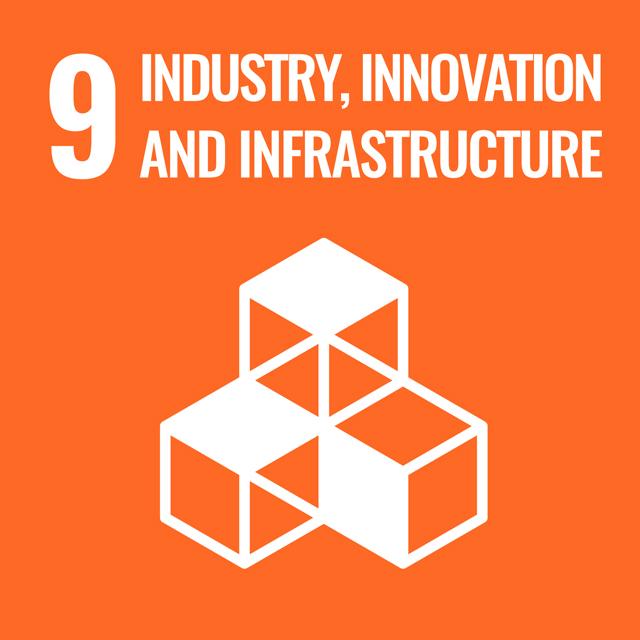Pursuing a career that aligns with SDG 9: Industry, Innovation and Infrastructure enables you to promote inclusive and sustainable economic development. This goal focuses on job creation, workers’ rights, and ethical business practices. Make your mark on economic empowerment.
The Goal: Industry, Innovation and Infrastructure
This goal aims to build resilient infrastructure, promote inclusive and sustainable industrialization, and foster innovation. Objectives include developing quality, reliable, sustainable, and resilient infrastructure, promoting inclusive and sustainable industrialization, increasing the access of small-scale industrial and other enterprises to financial services, and enhancing scientific research and technological capabilities.
The Work
Achieving SDG 9 requires building resilient infrastructure, promoting inclusive and sustainable industrialization, and fostering innovation. It involves investing in transport, energy, and communication infrastructure, supporting research and development, and enhancing access to financial services for businesses. Promoting sustainable practices in industry and ensuring equal opportunities for innovation are essential. International cooperation and funding are needed to support infrastructure and innovation projects in developing countries.
The Skills
Below is a list of key skills that are in demand for careers related to SDG 9. While it is not necessary to master all of these skills, familiarity with them can enhance your readiness and competitiveness in the job market
- Technical Skills
- Innovation
- Project Management
- Industrial Engineering
- Engineering Skills
- Research and Development
- Financial Literacy
- Collaboration
- Critical Thinking
- Policy Understanding
- Sustainability Practices
Engagement with Queen's and Kingston
You can help advance SDG 9 by supporting local businesses and startups, advocating for sustainable infrastructure projects, and participating in community planning efforts. Promoting innovation through STEM education and backing tech initiatives are additional ways to contribute. Raising awareness about the importance of resilient infrastructure and sustainable industrialization can also play a key role in achieving this goal.
Volunteering in Kingston
Past QUIP Internships
- Co-Op Student - Sustainable Infrastructure
- Co-Op Student- Sustainable Infrastructure, Environmental Engineering
- Transit Infrastructure Coop
- Transport Innovation Intern
- Student - Innovation, Research & Development
- Senior Technical Student - Capacity Planning & Grid Innovation
- Innovation Acceleration, Consultant Intern/Co-op
- Controls, Innovation and Urban Mobility Intern
- Biotechnology Intern
- Aerospace/Mechanical Research & Technology Intern
- AI Research Engineer
Sample Undergraduate Courses
- CIVL 431 Infrastructure Rehabilitation
- APSC 222 Engineering for Sustainability and Innovation
- APSC 381 Advanced Design and Skills for Innovation
- COMM 406 Social Impact and Innovation
- GPHY 332 Cities and Planning for Sustainable Development
- DEVS 352 Technology and Development
Sample Graduate Courses
- Collaborative Master Program in Applied Sustainability (CMPAS)
- Master Program in Physics, Engineering Physics and Astronomy
- CIVL 831 Assessment and Monitoring of Infrastructure
- APSC 888 Engineering Innovation and Entrepreneurship
Career Possibilities
- Civil Engineer
- Industrial Engineer
- Researcher
- Entrepreneur
- Scientist
- Construction Manager
- Urban Planner
- Environmental Engineer
- Innovation Manager
- Business Designer
- Innovation Consultant
- Mechanical Engineer
- General Maintenance and Repair Worker
- Aerospace Engineer
Corporations, NGOs, and Government Agencies
Corporations can contribute to industry, innovation, and infrastructure by investing in research and development (R&D) and promoting technological advancements. They can support the development of resilient and sustainable infrastructure, including transportation, energy, and communication networks. By fostering a culture of innovation, companies can drive economic growth and competitiveness. Additionally, corporations can collaborate with governments, academia, and other stakeholders to build inclusive and sustainable industrial ecosystems that benefit society as a whole.
- The department of Housing, Infrastructure and Communities Canada (HICC)
- Public Services and Procurement Canada (PSPC)
- Canadian Space Agency (CSA)
- Canada Infrastructure Bank (CIB)
- Transport Canada
- Infrastructure Canada
- Innovation, Science, and Economic Development Canada (ISED)
 Student Affairs
Student Affairs